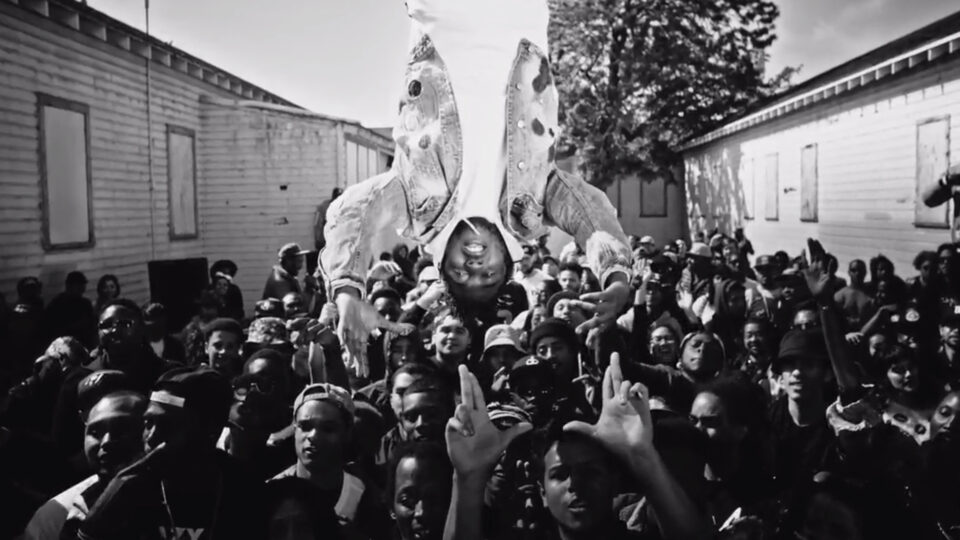

Even though I can’t cite any names or link to any YouTube clips to show you what I mean (the closest thing I’ve been able to find is Number 9 from this medley of 2016’s top Auto-Tune hits as if to add to the mystery, whoever created this video does not list the artists or titles), I hope you will understand when I say that what I’ve been hearing at the gym is best described as “music for invertebrates”. What I hear at the gym today makes me feel weak, nauseous it makes me lose my will-to-strength. However stupid it may have been, everything about it was crisp, and vivid, and quickening. But “ Pump Up the Jam” was, at least, a jam. It all sounds very European to me, a further degeneration of those strange arrangements cooked up in corporate offices in Düsseldorf or Antwerp decades ago gave us Snap!, Technotronic, Milli Vanilli, and other top-down producer-driven creations that all had the air of fraud about them whether or not they were built on straightforward deception. I have been trying for weeks to identify a single vocal phrase distinctive enough for me to Google it and find out its source, but so far I have not succeeded.Įverything is muffled and distant, not just the lyrics, but also what little remains of the beat, as if the people who listen to it no longer care about rhythm. But here too there is further filtration through machines, so that the resulting vocal product seems completely alienated from whoever first sang it. Some of them have nothing to do with reggae, but clearly originate in American hip-hop - on those rare occasions I can make out a word, it is often that charged bisyllabic lexeme that starts with an “n” and ends, thankfully, with an “a” rather than a hard “r”. I believe they might belong at their origin to that genre called reggaetón, but that they have been further processed through several additional filters at the remix stage to fit them to some other genre’s conventions, for which I have no name. Some of the songs seem to have an ancestral connection to reggae.
INSTRUMENTS USED IN ALRIGHT BY KENDRICK LAMAR PROFESSIONAL
I wish I could describe what I have heard there for you the fact that I -a professional describer, and for decades a sharply attuned critic of virtually every current of popular music- cannot describe it is itself the problem and the mystery that has motivated the present essay. Get back to the gym! the physical therapist said, and so I did.Īlthough the gym hosts a mixture of age groups, the music is chosen by the staff, who all seem to be around twenty years old. My shoulders were so weak that the mere weight of my arms hanging from them caused tremendous pain. Without an accompanying exercise regime, my muscles atrophied, and by the end of that year I found myself dreading even the task of opening doors. I gained an embarrassing amount of weight during the first lockdown, and overcompensated by losing it all, and much more, with a strict diet I started in early 2021 (zero flour, zero sugar, etc.).

My gym in the heart of the 19th arrondissement is inhabited by a goodly mix of young Tunisian beefcakes admiring themselves and one another in the full-wall mirrors older barrel-shaped strongmen, often with moustaches and faded anchor tattoos on their forearms, as if straight off the carnival circuit circa 1910, where you might see them wearing skimpy leopard-spotted togas and lifting those ball-shaped barbells from the cartoons and a scattering of scrawny ageing bourgeois who are quite plainly there on the stern recommendation of their doctors. Quelle voix salutaire ordonne que je vive,Įt rappelle en mon sein mon âme fugitive ? Proust, La Prisonnière, volume 5 of À la recherche du temps perdu 1

But does it exist somewhere? Vinteuil’s septet seemed to tell me: yes, it does. The world of differences being non-existent upon the surface of the earth, amidst all the landscapes that our perception renders uniform, a fortiori does it not exist in “le monde”. And of course, if he speaks as he just did, in this language that is an ambiguous expression of the preciousness of the objects of art and of le monde, this is because his old-lady-like sensitivities and his mondain culture furnished that true eloquence that was his own only with insignificant themes. de Charlus’s grudges and imagination could only wildly amplify.

As le monde is the kingdom of nothingness, there are only insignificant degrees between the merits of the various women in le monde, which M.


 0 kommentar(er)
0 kommentar(er)
